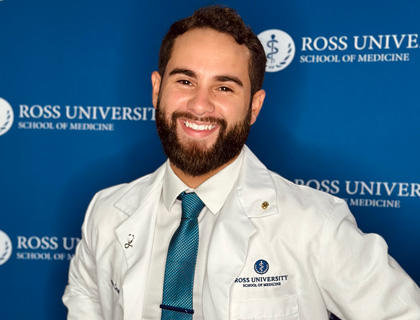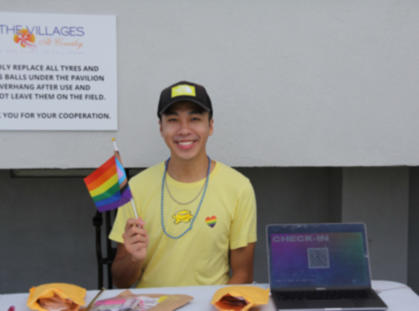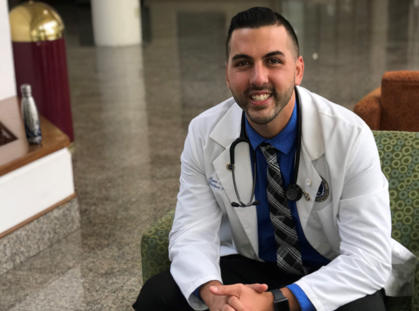“Research Day, now an annual event, is an important opportunity for researchers to showcase the research efforts currently ongoing at RUSM and for students to begin to engage with researchers and see what opportunities may be open to them should they wish to pursue research during their time here,” said Jennifer Connolly, PhD, associate professor, and a member of the RUSM Research Committee that led planning the symposium. Research Day used to be held each semester on campus but has since transitioned to an annual event held virtually to invite clinical students and faculty to join. The virtual format allowed for over 500 attendees to join and hear presentations and discussions on this year’s topic – Bench to Bedside: Genetic Underpinnings of Congenital Disorders.
RUSM students and faculty shined during the middle of the day-long program. In all, 24 students were presenters, showcasing their individual research posters in breakout sessions with two students – Victoria Pintar, BSC and Dewmi Subasinghe, BSc – joining RUSM faculty members Priya Dattathreya, MD, vice chair of the RUSM Research Committee, and Hedda Byer, MBChB in the oral presentation portion of the afternoon. Poster presentation winners included the following student authors:
- 1st Place – Kurt Luchia – Effects of mask orders on compliance and health
- Runner Up – Samuel Kim – U.S. Tobacco 21 is paving the way for a Tobacco Endgame
- 2nd Runner Up – Benjamin Bunnell – mRNA Reprogramming: A Review of Methods and Obstacles to the Bedside
In addition to RUSM presenters, the Research Committee was pleased to welcome Nadia Ameen, MD, professor of pediatrics at the Yale School of Medicine and Daryl Armstrong Scott, MD, PhD, associate professor at the Baylor College of Medicine. Both participated as plenary speakers sharing their respective paths to becoming physicians specializing in pediatric genetic research. Dr. Ameen primarily investigates mechanisms regulating the CFTR chloride channel in the intestine and how these are linked to genetic, and non-genetic diarrheal diseases and Cystic Fibrosis. Her clinical practice is focused on food and gut health in children to treat and prevent obesity, and chronic lifestyle diseases. Dr. Scott’s lab is dedicated to identifying and characterizing genes and genomic alterations that cause common, life-threatening birth defects and determining the molecular mechanisms by which they impact human health. Using a combination of animal models and data from individuals with mutations of the RERE gene located in chromosome 1p36, Dr. Scott’s lab has shown that RERE plays a critical role in the development of the brain, eye, inner ear, heart, and kidneys. He is actively working to determine the molecular mechanisms by which RERE-deficiency causes defects in each of these organs.
Attendees received 3.25 credits for joining the CME accredited event.



